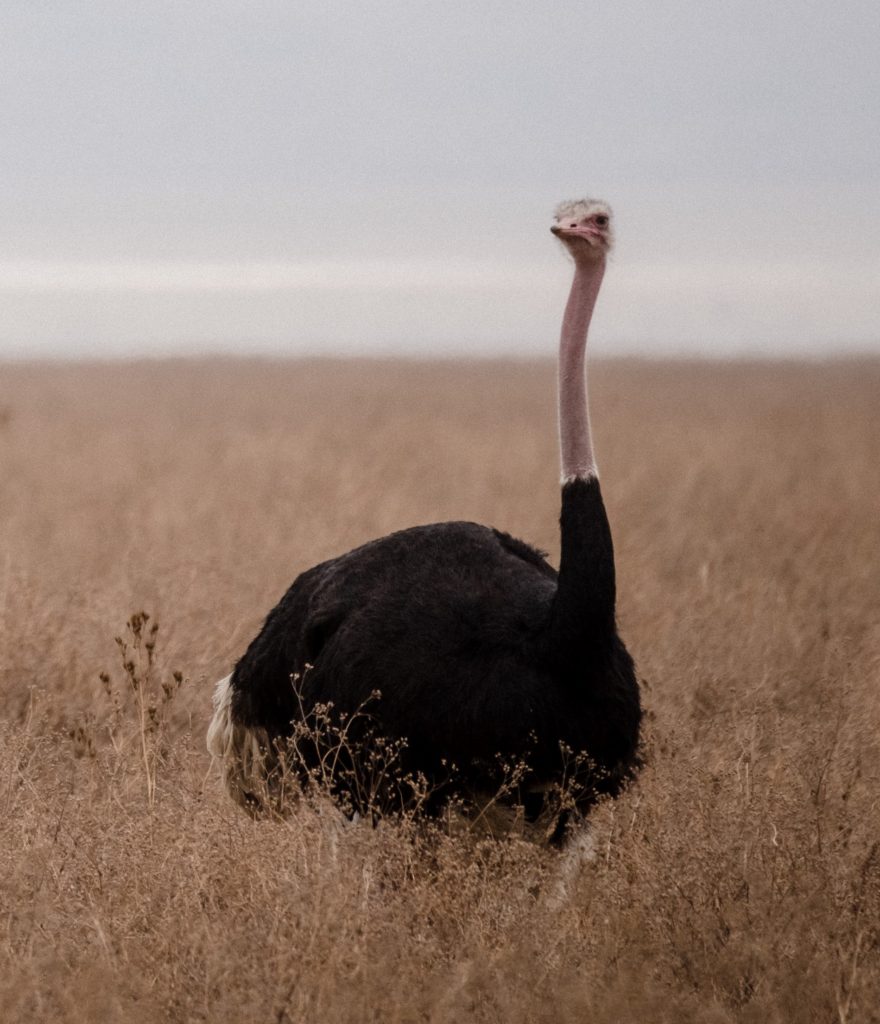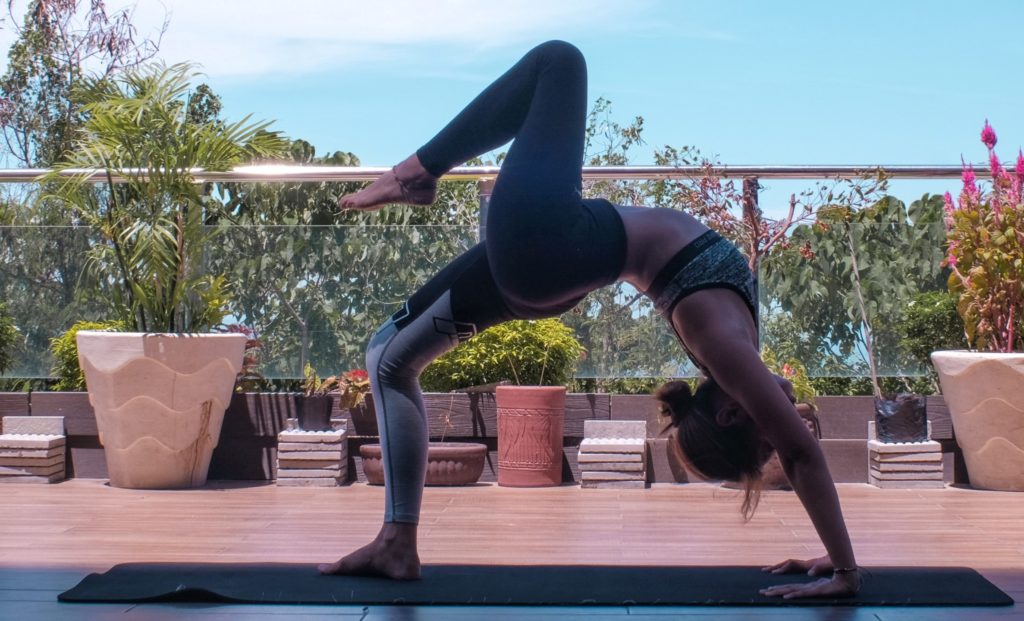My last post looked at a social response to the current situation, this will take a more individual one. No matter what the circumstances, there are always things that we can do to improve or at least modify a negative state of affairs.
Often, when we hear about coping with challenges, we are told about the ‘fight or flight’ response. In truth, there is a third, and much more common reaction and that is ‘freeze’. In the natural world, this is a good one. Many predators respond to movement, so standing still is a perfect camouflage. However, in our highly developed world where the predators are most often invisible, the freeze response is the least effective option. Like the ostrich sticking its head in the sand, we will not make ourselves a smaller target only blind to our options. (And for those who are interested, ostriches do not stick their heads in the sand out of fear but rather to bury and turn their eggs!)

Taking the right actions
The first suggestion I would make comes from the scouting movement: Be prepared. Here it is all about having the right kit in your metaphorical backpack. As a living embodiment of Murphy’s law, I have only managed to stay sane(ish) through the help of preparing myself for the next catastrophe. They have come thick and fast over the last few years, but despite the fact that I’d rather they’d stop, they have a diminishing impact. Why? Because I live my life with a firm commitment to building my resilience. I cannot change the vagaries of fortune, but I can equip myself to withstand their assaults. That said, I do not always succeed and am no stranger to despair; however, without these preparations, I know things would have been much worse.
There is another scouting phrase that I used to find a little silly, but post dog ownership (the first) realised was very wise. It goes: ‘There is no such thing as bad weather, only inappropriate clothing.’ This applies in both the literal and metaphorical sense, and as the storm clouds gather, I would like to share my foul weather wardrobe.

Headgear
Since our minds are most vulnerable in times of stress, let’s start here. There are any number of ways that we can strengthen our mental resilience and I shall mention those that have worked for me. Essentially, practice those things which uplift you.
Bibliotherapy – Reading books where the protagonist triumphs over adversity helps us do the same. These can be fiction or non- fiction; it really doesn’t matter. Though bibliotherapy may be a new form of mental health treatment, it is as old as story-telling itself. Myths, fairy-tales and ancient tragedies all give the same message: life is not easy or necessarily just, but if we behave with honour and courage, whatever the outcome, we have lived life well.
Meditation/Prayer – There is now an enormous body of evidence supporting the idea that a spiritual life can increase resilience and promote mental well-being. From the companionship of church attendance to the calm acceptance of Buddhism, each promotes discipline (you need to go there/do it) and a more positive view of life. Most religions are based on love and hope – two very good emotions to get you through dark times.
And if you do not feel comfortable with an organised spiritual practice, quiet contemplation focusing on loving-kindness or gratitude will bring similar benefits.
Breathing – The simplest and quickest way to rebalance the mind is through conscious breathing. This is used in meditative practices, but it can work in a much less formal way. Here are two methods that are easy to adopt whenever you feel your anxiety rising. The first involves taking a deep breath and counting to six (or more) and then breathing out and counting to eight (or more). Keep doing this until you feel your mind coming back into balance. The second is a Wim Hof tip. Whenever you feel stressed, hum! (Quietly if you are in a meeting.) Through concentrating on the breath involved in humming and reducing the number of breaths you take in a minute, you will immediately feel better.
Building mental fortitude is essential in times of uncertainty and change. We cannot possibly hope to survive and thrive unless we have a clear head to steer us.

Body protectors
Reducing exposure – Since there is currently no cure for the Coronavirus, our best course is to avoid it. Reducing exposure is the first and most important tactic -protecting both ourselves and those we care about. None of us can remove ourselves from any contact with the outside world, though, so here are a few suggestions for this disease and better general health.
Strengthening the lungs. The most vulnerable part of our body when under attack from Covid -19 is our lungs and it would be wise to strengthen them as much as possible. I have already mentioned the Wim Hof method, but if you don’t fancy that, there are several other options. Rush University Medical centre came up with some top tips for optimal lung health and these include: deep breathing, developing good posture, laughing and singing. For the full list, please visit: rush.edu/health-wellness/discover-health/8-tips-healthy-lungs
Hydrotherapy – There is some evidence to suggest that hot and cold treatments can boost the immune system. Cold immersion certainly brings numerous benefits and I’ve found it helpful in many ways.
Vitamin D – The sunshine vitamin. The jury seems to be out on this one in terms of the Coronavirus, although many believe it boosts the immune system. It certainly helps ensure healthy bones, teeth and muscles. If you are finding yourself stuck inside this winter, it may well be worth having your vitamin D levels checked. Ensuring your body has the right amount will only do you good.
A healthy body is the best defence against all illnesses. And the surest route to a healthy body is through exercise. The NHS recommends that we try to be as active as possible every day; with strengthening exercises twice a week and a total of 150 mins of moderate intensity exercise/ 75 vigorous intensity exercise every week. Ultimately, we want to do as much as we are able and then a little bit more! My exercise is very low level intensity, but it always makes me feel better!

History lessons
One of the most popular phrases at the moment is, ‘In these unprecedented times.’ I’ve even used it myself. Yet, on reflection, these are only unprecedented for those living today – go back just a century, and things will look eerily familiar.
The Spanish ‘flu, coming directly after WWI, must have felt apocalyptic. And going back further in time, outbursts of plague and other serious illness was commonplace. And my point is this: We survived.
Human beings are quite remarkably resilient. People may speak of end-times and of unprecedented difficulties, as if this were the worst thing that has ever happened. (It isn’t.) I am not so naive as to imagine that when the Covid element of this settles, all will be well. We are already witnessing the economic impact that may unravel for years to come. The US is in turmoil politically and socially and our own country rent with division over Brexit and inequality.
None of us can predict the future. However, what we do know is that storm clouds form, the rain comes and is replaced by sunshine. Let us equip ourselves – body and soul – to be able to cope with any kind of weather. And like the scouts, be prepared.



